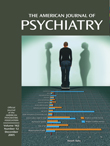Hypertension and Aripiprazole
Ms. A, a 56-year-old postmenopausal patient with a 30-year history of paranoid schizophrenia, was admitted to the hospital for an acute exacerbation of her mental disorder. Upon admission, bizarre paranoid delusions and auditory hallucinations were present. A medical history and a physical examination revealed no somatic disorder. Aripiprazole was then initiated at 15 mg/day. Twenty-six hours after her first dose—30 mg—she complained of palpitations. The findings of a physical examination were tachycardia (120 bpm, regular) and arterial hypertension (220/110 mm Hg). Her neurological state was normal. Aripiprazole treatment was interrupted, and Ms. A’s blood pressure returned progressively to its usual range (130/90 mm Hg) over 72 hours without treatment. Aripiprazole was then started again at 15 mg/day. Symptoms (palpitations) and signs (a heart rate of 120 bpm and blood pressure of 220/110 mm Hg) recurred over a few hours. Ms. A was successfully treated with propanolol, and aripiprazole was stopped. A first-generation antipsychotic was introduced, and both somatic and psychiatric outcomes were favorable. Common causes of a hypertensive crisis (an interruption of antihypertensive medication, endocrine and renal diseases) were ruled out.
References
Information & Authors
Information
Published In
History
Authors
Metrics & Citations
Metrics
Citations
Export Citations
If you have the appropriate software installed, you can download article citation data to the citation manager of your choice. Simply select your manager software from the list below and click Download.
For more information or tips please see 'Downloading to a citation manager' in the Help menu.
View Options
View options
PDF/EPUB
View PDF/EPUBGet Access
Login options
Already a subscriber? Access your subscription through your login credentials or your institution for full access to this article.
Personal login Institutional Login Open Athens loginNot a subscriber?
PsychiatryOnline subscription options offer access to the DSM-5-TR® library, books, journals, CME, and patient resources. This all-in-one virtual library provides psychiatrists and mental health professionals with key resources for diagnosis, treatment, research, and professional development.
Need more help? PsychiatryOnline Customer Service may be reached by emailing [email protected] or by calling 800-368-5777 (in the U.S.) or 703-907-7322 (outside the U.S.).

